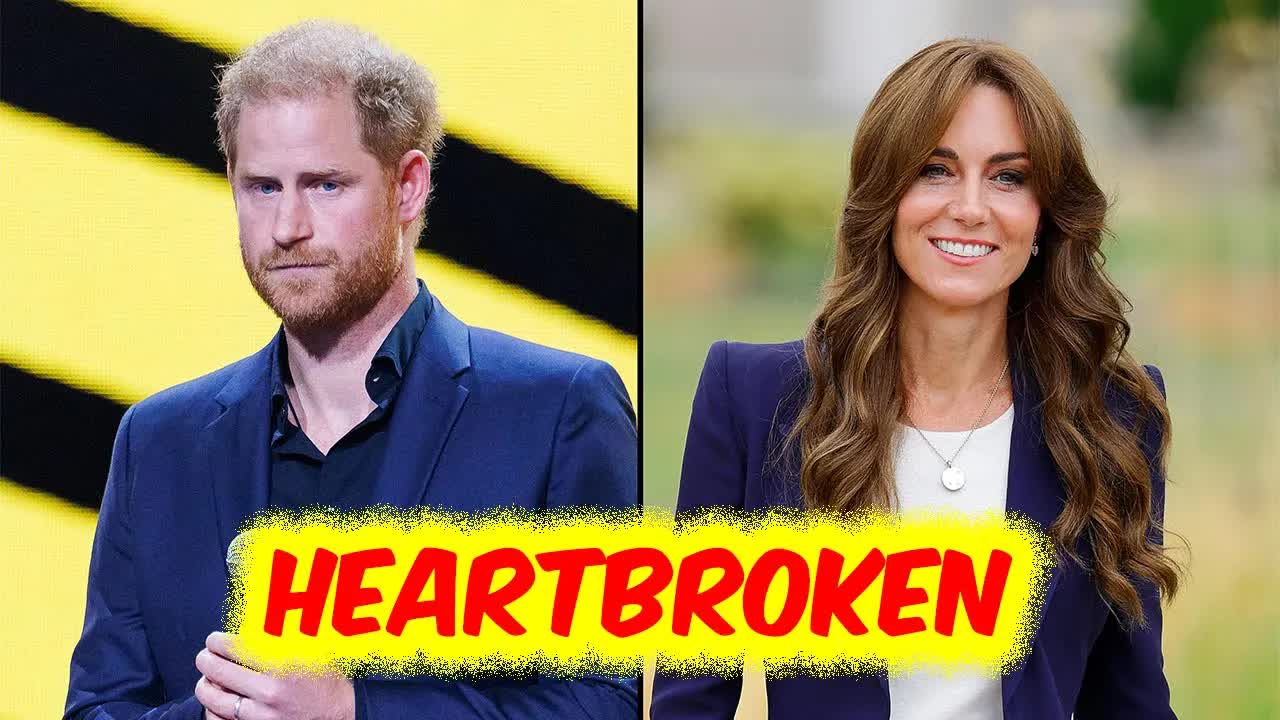In a surprising turn of events, Prince Harry has seemingly dashed any hopes for a family reconciliation with an emotional revelation during his recent appearance at the New York Times Annual Deal Book Summit.
The Duke of Sussex candidly shared his reluctance to return to the UK with his wife, Meghan Markle, and their children, Prince Archie and Princess Lilibet.
This declaration has sparked renewed discussions about the already strained relationship he shares with the royal family, particularly with his brother, Prince William, and sister-in-law, Kate Middleton.
During the summit, Harry opened up about the trauma from his childhood, particularly the painful memories surrounding his mother, Princess Diana‘s death.
He reflected on the lasting effects of that traumatic experience, revealing the inner turmoil he faced as a child who felt utterly powerless in the wake of such a tragedy.
“What happened to my mom, and the fact that I was a kid and felt helpless, there comes the inner turmoil,” he stated, shedding light on the emotional scars that have influenced his decisions regarding royal life.
Harry’s reflections serve as a foundation for understanding his decision to distance himself from the UK.
His concerns extend beyond his own experiences; he expressed fears that history might repeat itself.
“What worried me most was worrying that would happen to me, or to my wife, or to my kids,” he admitted.
This poignant revelation underscores the heavy emotional burden he continues to carry, as well as his strong desire to protect his family from the pressures and dangers he associates with royal life.
Despite some members of the royal family hoping for a reconciliation, Harry’s statements have made it clear that he has no immediate plans to return to the UK.
This raises questions about whether the ongoing rift between him and his family, especially with William, will ever be resolved.
The timing of Harry’s remarks is particularly notable, given Kate’s increasing role as a unifying figure within the royal family.
Royal expert Katie Nicholl noted Kate Middleton’s efforts as a peacemaker, especially regarding the ongoing tensions between Harry and William.
She praised Kate for her attempts to bridge the gap between the brothers, recalling her actions during the funeral of the late Duke of Edinburgh.
Nicholl illustrated how Kate has long been seen as a potential healer of the familial divide, having ushered the brothers together during significant moments.
However, despite Kate’s efforts, Nicholl believes Harry’s recent comments have only added strain to the situation.
She suggested that Harry may have unintentionally thrown Kate “under the bus” by making hurtful remarks involving their children in the narrative surrounding the family tensions.
This has led to speculation that his words could deepen the existing divide, complicating any chances of reconciliation.
Nevertheless, Nicholl remains optimistic about Kate’s ability to continue her healing efforts within the royal family.
She believes that, despite Harry’s lingering resentment, the Princess of Wales will persist in her attempts to foster unity.
According to Nicholl, Kate is likely to remain a key figure in bridging the gap between the Sussexes and the rest of the royal family.
While Harry’s recent remarks have undeniably complicated the prospects for a family reunion, royal experts like Katie Nicholl continue to view Kate Middleton as central to any future reconciliation efforts.
Her previous attempts to mediate between William and Harry, coupled with her steady presence as a peacemaker, suggest she may still play a crucial role in healing the rift.
For now, however, Harry’s choice to maintain his distance from the royal family appears to have shattered any immediate hopes for a reunion.
As the dynamics within the royal family remain complex and fraught with tension, many are left wondering if a path toward reconciliation is possible in the future.
The emotional weight of Harry’s statements serves as a stark reminder of the challenges that lie ahead for this once-unified family.
Related Stories

